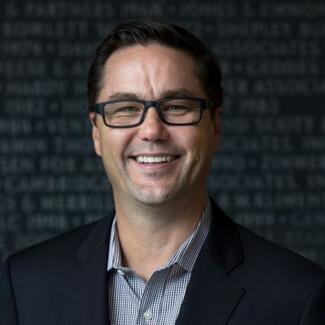Beyond the Beltway
How state-level policy is shaping our industry
While national headlines are dominated by the dysfunction and disruption coming out of Washington, D.C., the window, door and skylight industry has remained steadily focused on an often-overlooked arena: state legislatures, regulatory bodies and the development of model codes and standards that drive performance requirements. These are the venues where practical, targeted progress continues despite the noise from the nation’s capital.
Our industry has always possessed a “can do” spirit in meeting expectations on air, water, structural, thermal and energy performance.
That spirit is engrained in the culture of the industry because it is filled with craftspeople, technical experts and material suppliers, all of whom enjoy solving problems. Their approach to policymaking has always been to seek a reasonable, pragmatic, scalable solution. They are taking that spirit to every conversation with state government officials across the nation.
State-level policy
From Maine to Colorado, and from Florida to Minnesota, manufacturers are working with state policymakers. Their collaboration spans a wide range of issues vital to our industry and the customers we serve. These include developing and adopting high-performance building codes, ensuring law-mandated requirements are achievable, crafting standards and helping states mitigate homeowner losses from natural disasters, and navigating complex timelines and regulatory processes for phasing out substances like PFAS from products.
These partnerships are not theoretical. In Maine and Minnesota, for example, manufacturers have been at the table during key discussions about chemical disclosure and elimination. They have helped regulators in Maine embrace the need for a careful approach with products intrinsic to the health and safety of homes and buildings. We are hopeful this can become a model for PFAS regulation across the nation.
In Florida, our industry has historically supported the adoption of building codes to protect building owners and occupants against major storm damage. Conversely, we have also helped legislators there avoid risky legislative endorsement of aftermarket products that can void warranties on sliding glass doors.
In Colorado, where its legislature mandated that only high-performance windows, doors and skylights can be sold, manufacturers helped regulatory officials recommend the appropriate model energy codes as the baseline for the industry.
Essential involvement
This work is not always flashy. It doesn’t trend on social media or dominate cable news. But it matters—often more than the noisy debates in Washington. The contrast is stark: Washington may provide the sizzle, but it’s the thoughtful, varied and often bipartisan work in the states that brings the steak.
As states take more active roles in climate policy, consumer protection, and product safety and performance, the window and door industry must remain proactive and engaged. Our partnerships with state agencies and legislators are not only shaping safer, more resilient homes and buildings—they’re defining how innovation and responsibility can coexist. We are not merely reacting to regulatory pressures; we are helping craft practical, science-backed policies that benefit both consumers and manufacturers.
For industry leaders, staying plugged into state-level developments isn’t optional; it’s essential. The diversity of regulatory priorities and political landscapes across states means there is no one-size-fits-all approach. Our continued engagement ensures that state policies are informed, effective and supportive of environmental and health-related goals, while rooted in the realities of science, technology and markets.
Let’s all keep our eyes on the states—because that’s where the future is being built.
